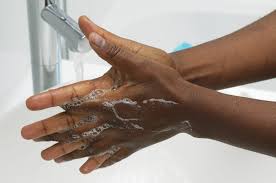The first full week of December is traditionally the time when national Hand Washing Awareness Week is celebrated, and it seems like it always comes at a perfect time. With the country in the middle of a holiday season that is coinciding with a rise in respiratory viruses including Covid, influenza, and RSV and also an uptick in gastrointestinal outbreaks, a reminder about proper hand washing is helpful for everyone.
Even if you think hand washing isn’t something that’s all that important in the face of all the germs circulating, it’s actually one activity that, when done effectively, can reduce the chances of catching or spreading germs and infections in any setting.
Public awareness campaigns such as the Henry the Hand and the Centers for Disease Control and Prevention’s (CDC) Life is Better with Clean Hands, help folks understand the whys and hows of proper hand washing.
From working in a healthcare setting to coming home from the grocery store, thorough hand washing is an important step in taking care of yourself, those in your care, and the wider population.
What exactly makes one hand washing routine better than another? According to the CDC timing and technique do make a difference. Here are some essential times to focus on washing your hands thoroughly:
- after using the bathroom or changing diapers
- before, during, and after cooking (especially if you are touching raw meat)
- before and after seeing a patient
- when you return home from being outside or in a public setting such a store
It might seem like you’re washing your hands endlessly, but as you pick up germs on your hands throughout the day, a good cleaning is needed. It’s easy to forget to wash your hands. No matter how ingrained it may be, a hectic work day, returning home and unloading groceries, and an unexpected interruption can all disrupt your normal routine. Repitition is key to helping you associate certain times and activities with paying attention to your hands and that routine is key.
As a nurse, being obvious with hand washing is reassuring to patients and helps set a standard of practice in your unit. As a nurse leader, making hand washing a priority for you and your team will help protect them and is also an important step for patient safety. Hospital acquired infections including staph infections and C. difficile are easily spread through contact, so keeping your hands clean at work is critical.
Since so many healthcare organizations use alcohol-based hand sanitizer, most nurses are used to that quick disinfectant when they are on the job. And while hand sanitizers are great at killing most germs, sometimes soap and water will be necessary. When your hands are heavily soiled, have a chemical on them, or what you are doing requires hands that are as sterile as possible, then soap and water is the best option. Soap and water helps you remove dirt, germs, and anything on your hands because you can lather up, scrub, and then rinse it all away.
For such a simple task, hand washing is an outstanding way to stop the spread of germs and help promote health among your team, your family, and your patients.
- A Camp Nurse Volunteer Shares the Joy - April 30, 2024
- Is the FNP Program Right for You? - April 24, 2024
- WOC Nurses Week Highlights Specialty - April 16, 2024


